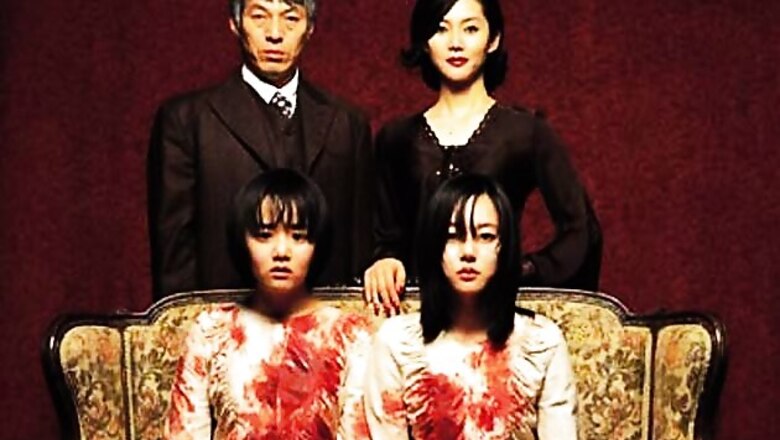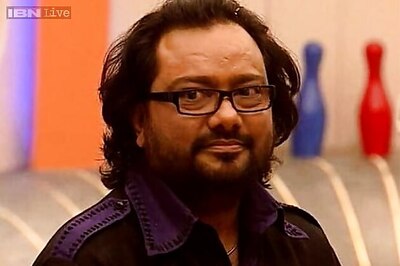
views
Dear horror filmmakers,
The constraints of making a horror film are more straining than the obstacles of creating a rom-com. Horror films should be a 'perfect' blend of technique and emotion. This week a Hindi film release tries to balance the equation between the content and the treatment. Director Suparn Verma's 'Aatma' relies more on a relationship triangle than technical gimmickry, and this gives it an edge over the conventional horror films that we have been seeing for the last four decades. But, at the same time it also brings the focus back to the correct combination of ingredients in a horror film.
From RT Ramsay to Vikram Bhatt to Ram Gopal Varma, the Hindi film industry has witnessed the perfection of technique, but horror films are still not considered at a par with other genres. We as the consumers of horror flicks want some amendments in the existing formula.
Ram Gopal Varma remains the pioneer of the neo-horror films in India because his characters live like normal beings rather than playing a pawn in an illogically fantasised world.
In 'Raat', the story was about a family that moves into a new house which was haunted. It was released 21 years ago and thus the filmmaker had to go by the socio-economic scenario of the post liberalisation period. But then moving into a new house became the trademark of most of Varma's films. 'Bhoot', 'Agyaat' and 'Bhoot Returns' played with the same psychology that if you move into a new space then you will have to abide by the rules of that place.
Vikram Bhatt had to say something different about possession, so he went for a new theory which was completely in sync with the popular ideas of religion and the prowess of religious symbols. The character of Professor Agnihotri in 'Raaz' found a resemblance in Father Thomas of 1920 and the priest of 'Haunted'. It's not like that Vikram Bhatt hasn't tried to develop the characters in his films but the characters were evolved on the similar line with Tara Dutt of 'Raaz 3' being their culmination point. The character of Tara Dutt doesn't clarify its leaning and gets perceived as a vague amalgamation of supernatural and evil.
On a second look, the structure of Vikram Bhatt films seem to be following the same line that we used to travel some thirty years ago.
Ramsays used to make films which were easily predictable and they knew it, so they infused them with the idea of touching some sensitive nerves. However, that never deterred the horse-carts from going via dense forests where the poor souls had to spend the night in an abandoned villa. What surprises more is the exact replication of Ramsay's things in '1920 - Evil Returns', which is a 2012 film.
Despite having a tradition of the ghost killing the girl in a bathtub, more or less Indians are open to see obscenity free films, which means the filmmakers can actually come out of the 'necessity' of skin-show in horror films. Until and unless you have a bikini model or a pornstar at the helm of affairs you don't need to delve into cleavages and pan up the thighs. The willing suspension of disbelief is directly related to the plausibility of the events and it doesn't have much to do with the wild fantasies of a movie goer.
The West has seen the development of a new group of viewers that is embracing films like 'Saw' and 'I Spit On Your Grave'. One needs a tough heart and a penchant for grotesque scenes to sit through these films. Indians are still naive and full of innocence in this regard and they would probably like to go with the idea of not directly confronting the gross images. This does limit the options of a director but it also opens a flood-gate of opportunities in the Indian context. Why do you think we go to the cinema halls if we are in no mood of watching songs and dance?
Torture films may bring out the nuances of a psychologically disturbed character but it also initiates a debate about regressive versus progressive, and an ideal film shouldn't propagate backward looking notions despite it being a medium of free conversation.
We like to be scared because it takes us away from the harsh realities of life for some minutes and if the visuals are powerful than the effect can get elongated but if the filmmaker chooses to focus on one of the bitter truths of our day to day life then it may help us in finding a solution. We wouldn't want to be associated with a character which has very little to boast about. So, the question of escaping from the reality vanishes and what remains with us is the importance of finding a solution to the existing problems.
There is a difference in being afraid and being excited. A titillated brain doesn't hold on to a thought for long but an ignited mind can always fetch up some solutions for its own sake. This will start an intra-personal conversation and the film will go on to remain in the sub-conscious of the viewer. The horror genre will garner respect in India only if it comes closer to the noir genre. Catharsis is important and the audience wants to go home with a relieved mind but some of the finest Japanese and Korean horror films do exactly the opposite.
So, the point is not about giving a comical relief to the audience but to introduce him to the complexities of a darker world. If you will take a glance to some of the acclaimed horror films in the past, you will find a common thread going through all of them. They all were the stories of common human emotions.
'Raat' and 'Bhoot' clicked because of their believable premises, 'Mahal' worked due to the strong motive of the characters and, all these films featured issues which make our real life tough.
Hope you are going to reply through a film which fulfils our demands.
Thanks,
An eternal fan.
####




















Comments
0 comment